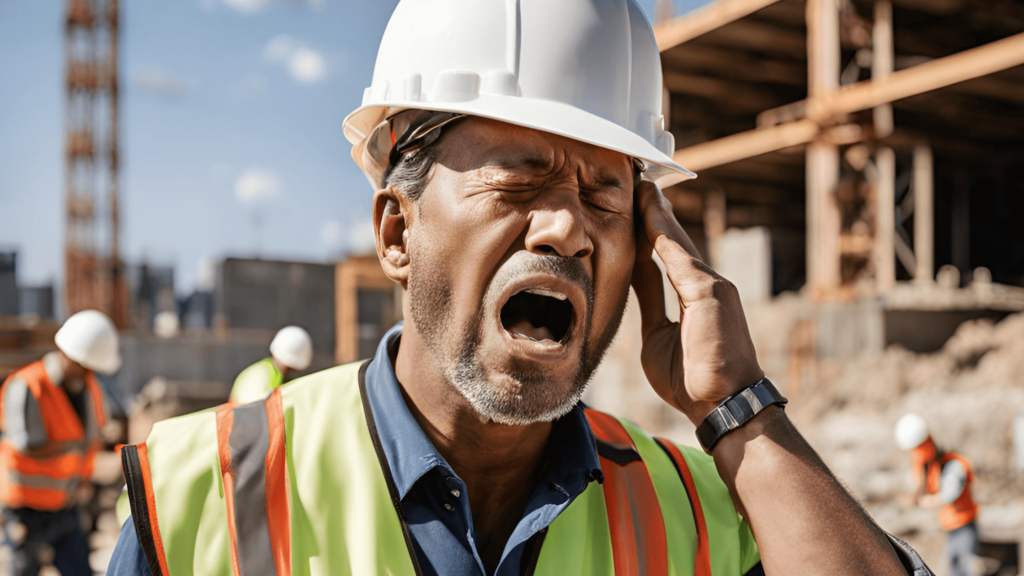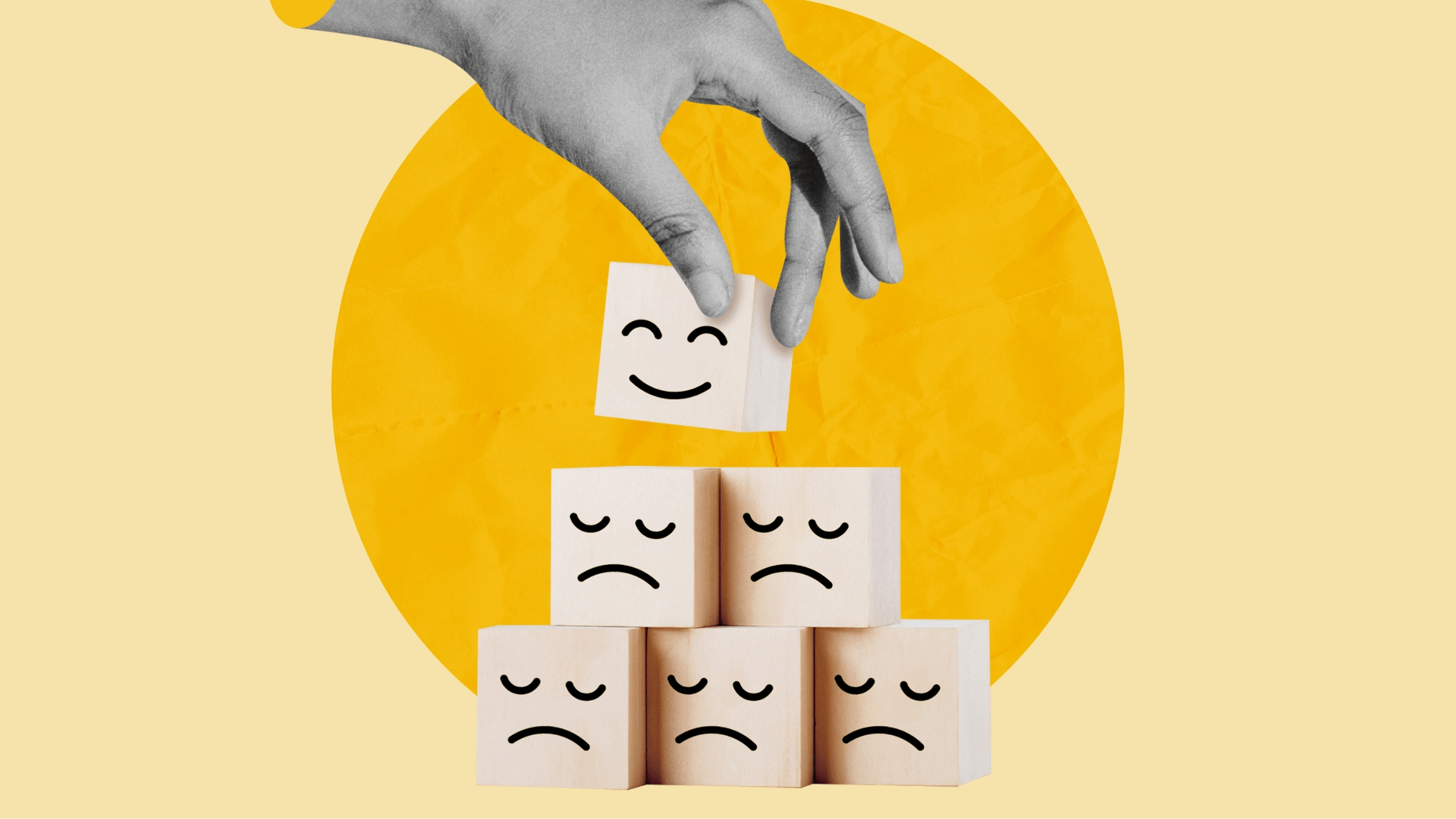Maintaining mental health is important in any profession, but it’s especially important for those working in demanding and physically exhausting jobs like construction. Long hours, intense physical labor, and the constant pressure to meet deadlines can take a serious toll on your mind and body. If you constantly feel overwhelmed, experience frequent headaches or migraines, or have difficulty concentrating at work, it might be time to take a mental health day. Recognizing when you need to take a step back and focus on your well-being is key to avoiding burnout and staying productive in the long run.
10 signs you might need a mental health day
1. Headaches or migraines

Frequent headaches or migraines can be a sign that you’re under too much pressure. Stress is a common trigger for tension headaches and migraines, and when your mind is constantly racing, your body may respond with physical pain. If you find yourself reaching for painkillers more often than usual, chances are a day or two off work would do you some good.
2. You’re overwhelmed by your normal daily tasks
If tasks that you usually handle with ease start feeling insurmountable, it might be time to step back. When organizing tools, following routine procedures, or managing your daily to-do list becomes stressful and exhausting, your body and mind are likely telling you that you need a break. It’s normal to have off days, but if this feeling persists, it could be a sign that you need to recharge.
3. Digestive issues
Your gut is often referred to as the body’s second brain because it’s closely connected to your mental health. If you’re experiencing frequent stomach aches, nausea, or other digestive issues, it could be a physical manifestation of stress and anxiety. These symptoms are your body’s way of signaling that something is off, and taking a mental health day can help alleviate these discomforts.
4. Irritability

Do you find yourself snapping at coworkers or becoming easily frustrated over minor issues? Irritability is a common sign of mental fatigue, and it can strain your relationships at work and at home. When small annoyances start to feel like major problems, it’s a clear indication that you need to step back.
5. Reduced performance
If you notice a decline in the quality of your work, it’s time to take a mental health day. Making more mistakes than usual, struggling to meet expectations, or simply not caring as much about the outcome of your projects are all signs that you’re mentally drained. In the construction industry, these little mistakes could end up being dangerous or costly. A day off can help you return to work with renewed focus and energy.
6. Difficulty concentrating
When you’re mentally exhausted, concentrating on tasks can feel nearly impossible. You might find yourself losing track of instructions, having trouble staying engaged during meetings, or zoning out while operating machinery. Difficulty concentrating is not only a sign that you need a break but also a potential safety hazard in a construction environment. Taking time off to rest your mind can improve your focus and help you avoid accidents on the job.
7. Poor sleep

Sleep is essential for mental and physical health, but stress can make it difficult to get the rest you need. Believe it or not, sometimes, the more exhausted you are, the harder it is to get a decent sleep. If you’re experiencing trouble falling asleep, staying asleep, or not feeling rested after sleep, it’s a sign that your body is struggling to cope with stress. Taking a mental health day allows you to catch up on some much-needed sleep and reset your body’s natural rhythms. And if you’re still struggling to sleep properly, consider sleep supplements.
8. Increased use of unhealthy coping mechanisms
Turning to excessive caffeine, alcohol, or other substances to get through the day is a clear sign that your body and mind are seeking relief from stress. While these coping mechanisms might provide temporary comfort, they can lead to long-term health problems if not addressed. Taking a mental health day allows you to break these habits and find healthier ways to manage stress.
9. Physical exhaustion beyond normal tiredness

Construction work is physically demanding, so it’s normal to feel tired at the end of the day. However, if you’re feeling constantly drained, even after a full night’s sleep, it might be time to take a mental health day. Chronic exhaustion can lead to burnout, which not only affects your work performance but also your overall well-being.
10. Decreased motivation and enthusiasm
Losing interest in work projects you once enjoyed or lacking the drive to start new tasks can be a sign that you’re mentally and emotionally exhausted. When motivation and enthusiasm are low, it’s difficult to stay engaged and productive. Taking a mental health day allows you to step back, reflect, and rediscover your passion for the job.
Benefits of taking a mental health day
Improved productivity
It might seem counterintuitive, but taking time off can actually make you more productive. When you’re well-rested and mentally refreshed, you’re better equipped to tackle tasks efficiently and with greater focus. A mental health day can help you return to work with a clear mind, ready to perform at your best.
Reduced stress and anxiety
One of the most immediate benefits of taking a mental health day is reducing stress and anxiety. By stepping away from work and giving yourself permission to relax, you can lower your cortisol levels and reset your nervous system. This makes you feel better in the moment and helps you manage stress more effectively in the long run.
Prevention of job burnout
Burnout is a serious issue in high-pressure jobs like construction. It’s characterized by emotional exhaustion, detachment from work, and a sense of reduced accomplishment. Taking regular mental health days can prevent burnout by allowing you to rest and recharge before you reach the point of complete exhaustion. This proactive approach helps you maintain a healthy work-life balance and keeps you engaged in your job.
Enhanced physical health
Mental and physical health are closely connected. When you reduce stress through mental health days, you also alleviate physical symptoms like headaches, muscle tension, and digestive issues. Over time, this can lead to better overall health, fewer sick days, and a more fulfilling career.
Better workplace relationships
When you’re mentally and emotionally balanced, you’re more likely to have positive interactions with your coworkers. Taking time off to recharge can improve your mood, making you more patient, understanding, and cooperative. This can enhance your work relationships and contribute to a more pleasant and productive work environment.
Tips for making mental health days a regular practice
Acknowledging the challenges of taking time off in the construction industry is important. Tight deadlines, physical demands, and a fast-paced work environment can make it difficult to prioritize mental health. However, incorporating regular mental health days into your routine is essential for long-term success and well-being.
Here’s how you can do that.
Communicate your needs

Open and honest communication with your supervisors is key. Let them know how important mental health days are to your overall performance and well-being. Explain that taking time off when needed can benefit the company by reducing absenteeism, improving productivity, and preventing accidents on the job.
Be flexible
In an industry where taking a full day off isn’t always feasible, consider alternative ways to practice self-care. This could include scheduling more short breaks throughout the day, taking a half-day when possible, or using a long weekend to rest and recharge. Flexibility is key to finding a balance between meeting work demands and taking care of your mental health.
Incorporate self-care practices

In addition to taking mental health days, make self-care a part of your daily routine. This could include simple practices like deep breathing exercises, massage, stretching, or taking a few moments to relax during your breaks. Engaging in activities you enjoy outside of work, such as hobbies or spending time with loved ones, can also help you maintain a healthy work-life balance.
Plan ahead
If you know that a particularly stressful period is coming up, plan your mental health day in advance. Scheduling time off during less busy periods or around project timelines can make it easier to get approval from your supervisors. Planning ahead also allows you to arrange coverage for your responsibilities, ensuring that work continues smoothly in your absence.
Use available resources
Many construction companies offer employee assistance programs (EAPs), counseling services, or wellness initiatives. Take advantage of these resources to support your mental health. Whether you talk to a counselor, attend a stress management workshop, or participate in a wellness program, these resources can provide valuable support and help you stay mentally and physically healthy.
Reach out to a professional when needed
Sometimes, despite your best efforts, stress, anxiety, or depression can persist. If you’re struggling to manage your mental health on your own, don’t hesitate to seek professional help. A mental health professional can provide personalized guidance, support, and strategies to help you navigate your challenges and maintain your well-being.
Whether it’s through therapy, counseling, or medication, reaching out to a professional is a proactive step toward maintaining your mental and physical health in a demanding work environment.
Bottom line
Taking care of your mental health is not a luxury—it’s a necessity. Recognizing the signs that you need a mental health day, understanding the benefits of taking time off, and making mental health a regular practice ensures that you can continue to perform at your best. By prioritizing your well-being, you not only improve your own quality of life but also contribute to a safer, more productive, and more positive work environment for everyone.



1 comment